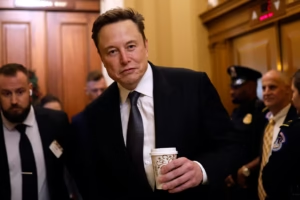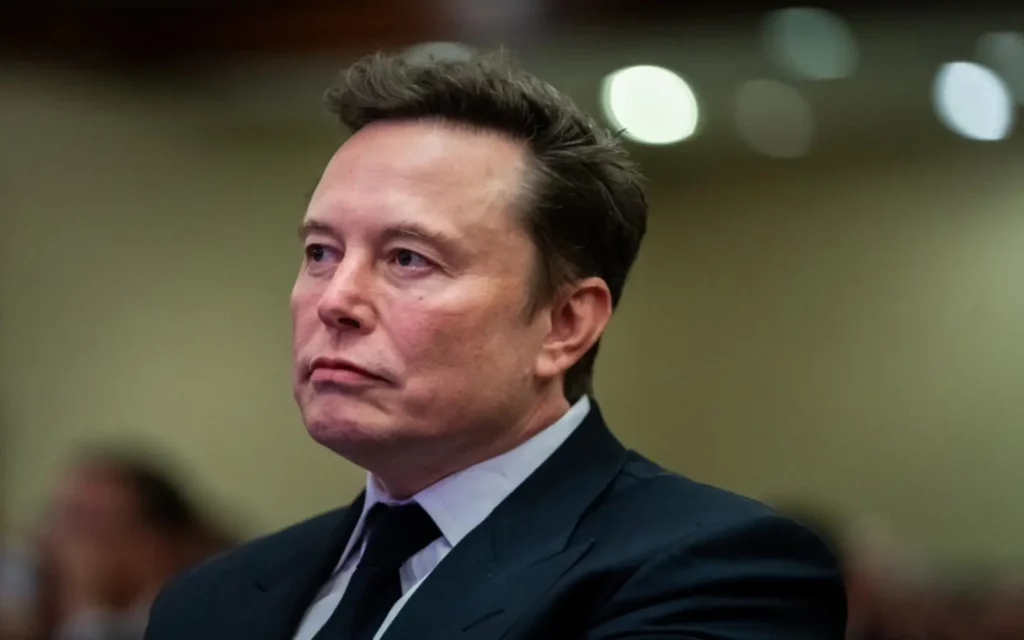Government Efficiency Could Have Stopped Elon Musk
Stock trades happen quickly, while government actions tend to be more deliberate.

Elon Musk is riding high in Washington.
After excessively praising Donald Trump, transforming Twitter into the red-pilled X, and showering the former president with $239 million in campaign funds, Musk secured a prominent position in Trump’s second administration. However, he wasn’t interested in being a secretary; instead, he had his sights set on DOGE.
The Department of Government Efficiency, named after Musk’s beloved meme featuring a Shiba Inu and its associated cryptocurrency Dogecoin, will be co-led by Musk and fellow billionaire Vivek Ramaswamy. This “department” aims to cut unnecessary expenses in Washington, streamline bureaucracy, and ensure the entire operation runs smoothly and efficiently.
In other words, Trump is introducing more bureaucracy to tackle existing bureaucracy. The implementation is expected to be even more problematic: DOGE is reportedly considering suggestions from the Wisconsin Institute for Law and Liberty, a conservative nonprofit, which asserts it can save $120 billion from the federal budget by eliminating diversity, equity, and inclusion programs.
While DOGE seems to be a recipe for disaster, any informed student of civics understands the necessity for improved efficiency in government. However, it became evident this week that Musk has directly benefited from the sluggishness of government processes.
On Tuesday, the U.S. Securities and Exchange Commission, the main federal regulator of Wall Street, filed a lawsuit against Musk. In the complaint submitted to federal district court in D.C., the agency alleges that Musk breached a crucial provision of federal securities law by failing to make the necessary disclosures when he acquired shares of Twitter. When an investor gathers more than 5 percent of a company’s stock, they are obligated to file reports with the SEC, which is a vital measure for transparency.
When Musk finally revealed his stake on April 4, 2022—11 days later than required—the stock surged by 27 percent in a single day. The SEC stated in its complaint, “Because Musk failed to timely disclose his beneficial ownership, he was able to make these purchases from the unsuspecting public at artificially low prices,” alleging that Musk shortchanged Twitter investors by $150 million in stock transactions during that period, leaving anyone who sold their shares at that time deprived of their true value.
Musk has had a contentious relationship with the SEC. After he tweeted in 2018 about potentially taking Tesla private, the SEC sued him for fraud. This resulted in a settlement where Musk paid $20 million and stepped down as chairman of the company. “I do not respect the SEC,” he told 60 Minutes later that year. “I do not respect them.”
In the Twitter acquisition case, Musk had an unfair edge when he offered to buy the company for $54.20 per share on April 14, 2022, an offer that the Twitter board ultimately accepted (possibly to Musk’s surprise, as he later sued to back out of the deal, only dropping the lawsuit when it became clear he would lose in court). Even with the stock he acquired at a lower price, Musk still needed $13 billion in loans and $7 billion in equity investment to afford the $44 billion price tag, making it one of the largest leveraged buyouts in history.
If you’re keeping track, the SEC took almost three years to file a lawsuit against Musk regarding the Twitter deal. This happened just as Trump was about to take office, with SEC Chair Gary Gensler leaving the agency. It’s likely that Trump will instruct whoever takes over Gensler’s position to dismiss the charges against his friend Musk.
Musk’s relationship with Twitter has been tumultuous; he wanted it, then hesitated, and ultimately bought it out of necessity. He transformed Twitter, a notoriously toxic social media platform, into X, which has struggled to be a successful social media site while significantly enhancing the political standing of both Elon Musk and Donald Trump.
If the government were truly efficient, it might have the authority to prevent illegal stock acquisitions before they even hit the table, or at least shortly after Musk’s takeover.
We are now entering an age of unchecked oligarchy. If the government couldn’t intervene before Musk gained control, what makes anyone think it could do so in the future?
Read About: Low Cost Business Ideas with High Profit



2 thoughts on “Government Efficiency Could Have Stopped Elon Musk”